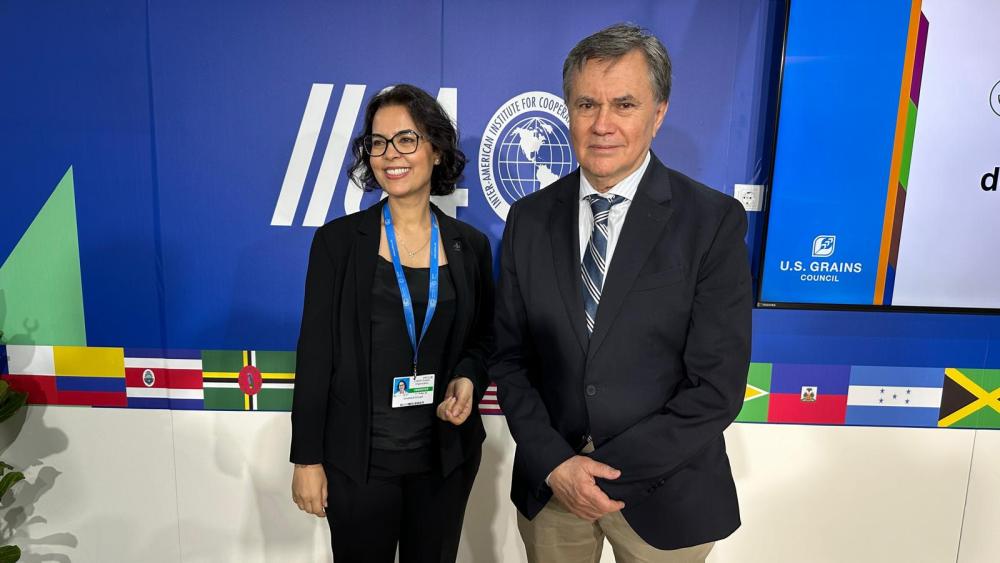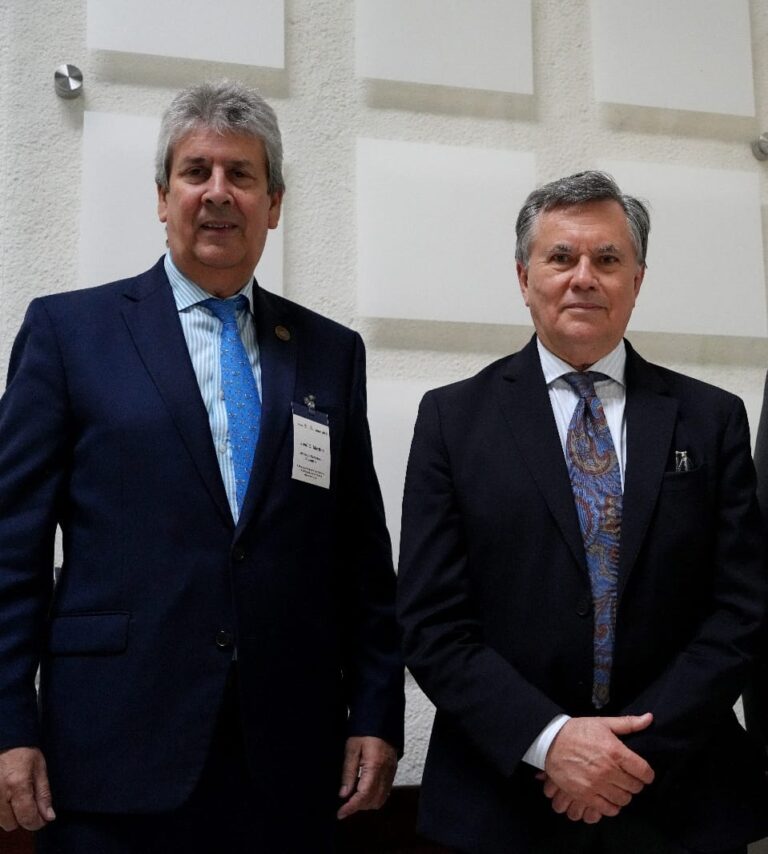The impact of climate change on tropical agriculture and the need for science and innovation to play a leading role in protecting productivity were other key topics discussed.

Baku, Azerbaijan, 13 November 2024 (IICA) – The Inter-American Institute for Cooperation on Agriculture (IICA) extended its alliance with the Consultative Group on International Agricultural Research (CGIAR), the world’s largest network for agricultural research and innovation, during COP 29. CGIAR’s Executive Director, Ismahane Elouafi, met with IICA’s Director General, Manuel Otero, at the Home of Sustainable Agriculture of the Americas, a pavilion that the hemispheric organization shares with its partners at the world’s largest environmental forum, which this year brings together representatives from 197 countries in Baku, Azerbaijan’s capital.
“We discussed various topics of mutual collaboration between CGIAR and IICA, including how we can ensure that agriculture in Latin America and the Caribbean accelerates its transformation to achieve greater resilience, sustainability, and efficiency. We also talked about ways to strengthen science and research systems so that we can improve the functioning of agri-food systems,” explained Elouafi, who has led CGIAR since 2023. CGIAR, for over 50 years, has provided scientific evidence and new tools to transform agri-food systems in middle- and low-income countries.
Elouafi and Otero also extensively discussed ways to enhance productivity and resilience in Caribbean islands. “The Caribbean islands must join forces with the Pacific islands and other regions worldwide to share experiences, best practices, and learnings, as they are all extremely vulnerable to climate change,” stated Elouafi.
Tropical Agriculture
The impact of climate change on tropical agriculture and the need for science and innovation to play a leading role in protecting productivity were other key topics discussed.
“We talked about the importance of building alliances with public and private sector institutions to create a new institutional framework for the agricultural sector. We invited CGIAR to share a platform for tropical agriculture that IICA is developing, aimed at generating synergies to address the reality of declining agricultural yields,” revealed Otero.
One central theme of the discussion was the need to deepen South-South cooperation to share knowledge among developing countries. CGIAR’s Executive Director underscored the importance of prestigious Latin American institutions, such as the Brazilian Agricultural Research Corporation (EMBRAPA) and the Tropical Agricultural Research and Higher Education Center (CATIE), sharing their expertise with African countries.
“Agriculture is often seen as the villain in international climate change forums, but this is a misguided view. Agriculture itself holds the solution to climate change mitigation, although it requires accelerating transformation through technology and innovation,” Elouafi said during her visit to the Home of Sustainable Agriculture of the Americas at COP 29.
“Agriculture can decarbonize the world through natural processes involving plants and the sun. An electric car cannot achieve this. But to steer agriculture toward decarbonization with more sustainable practices, we need to incentivize producers through policies and markets. We must promote the right incentives, those that provide income to producers. Today, those who practice sustainable methods do not have a decent livelihood because they do not receive payments for ecosystem services,” she added.
CGIAR’s Executive Director concluded by emphasizing the importance of Latin American and Caribbean agriculture for global food security: “The region’s agri-food systems employ new technologies and are highly productive. Agroecology is also widely practiced in the region. Latin America has a long history of productive systems that protect nature. I believe it serves as a model for other regions, but it does not receive the recognition it deserves.”
More information:
Institutional Communication Division.
comunicacion.institucional@iica.int











